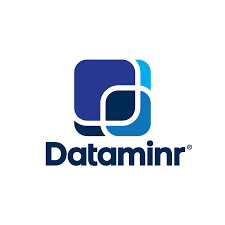Andrew Horner
Create Your First Project
Start adding your projects to your portfolio. Click on "Manage Projects" to get started
Lost and Learnt TUI
Project type
Cyber Security
Location
London
Date
2020
Role
Senior Enterprise Account Executive
I was working on an opportunity for TUI at Dataminr with the travel team around security to provide real-time alerts for locations, countries, flights, weather and much more to protect their customers. We had made significant progress as demos and PoC had been completed and I was putting together the final pitch.
We had agreed on a date, and I was already bringing together both teams’ security and legal councils in preparation for closing the contract.
We conducted the meeting and presentation as usual, and time is there for any questions. The question that arose was “Why do we need this when we are collaborating with A3M to finalise our in-house program”. This was a miss and it was kept quiet from most staff at the time but as a Senior AE, I should’ve known who this person was and engaged much earlier on.
Losing a big pitch to TUI was a valuable learning experience, offering myself and the team insights for future success. Here are some key lessons that I learnt from the experience:
1. Stakeholder Engagement: Engaging the right stakeholders early in the process is critical. The key decision-makers weren't fully engaged or onboard during the pitch and subsequently process was the factor in losing the deal. Identifying and involving all relevant stakeholders ensures alignment and understanding of their expectations.
2. Understand Client Needs Deeply: One of the most crucial lessons is the importance of fully understanding the client's unique requirements and pain points. The pitch failed to resonate with TUI indicating that more in-depth research and alignment with their business goals was necessary. Tailoring solutions specifically to their challenges can make a significant difference. This was so apparent in the sales process. I should’ve been 100% certain that all the decision makers and buyers were present and had been collaborated or updated throughout the process.
3. Clear Value Proposition: It’s essential to articulate a clear and compelling value proposition. TUI didn’t see the distinct advantage of our offering compared to their in-house solution, the message was too broad and unclear. I should’ve ensured that the specific benefits, return on investment, and differentiators are highlighted. This would’ve meant we had a chance to use our solution as a smaller add-on to enhance their solution and work to grow with them over time.
4. Demonstrate Expertise and Case Studies: Demonstrating a track record of success through case studies or industry expertise could have bolstered credibility. If TUI had concerns about your ability to deliver, more concrete examples of past successes and references might have helped address those doubts.
5. Adaptability to Feedback: Being open to client feedback during the pitch process is vital. If the team failed to adjust or respond to TUI’s concerns or objections during discussions, it could signal a lack of adaptability. Listening and making real-time adjustments can sometimes be the difference between winning and losing.
6. Competitive Landscape Awareness: I know it is important to stay updated on what competitors are offering and how they position themselves and I had a very good understanding of this, but TUI chose a competitor to collaborate with so, understanding where they outperformed me is paramount—whether in price, technology, flexibility, or service—offered insights for refining my strategy for next time
7. Internal Coordination: The coordination between my internal teams—myself, product, technical, and leadership—was and is seamless. I know any misalignment can weaken the pitch and the sales engineers were very adept at relationship building and getting much-needed information from their technical counterparts. We have always been on the same page, but this was 100% my error and no one else’s. Clear roles and unified messaging are critical for presenting a coherent, powerful proposal.
8. Follow-Up Strategy: Even after losing the pitch, I followed up with TUI for feedback as it can be invaluable and was. Understanding what worked and what didn’t from their perspective provides direct insight into areas of improvement, helping to refine future pitches.
Ultimately, losing the pitch to TUI is an opportunity for reflection and growth. By addressing these areas, the team and I can enhance our approach for future pitches, increasing their chances of success with other major clients, and we did.



